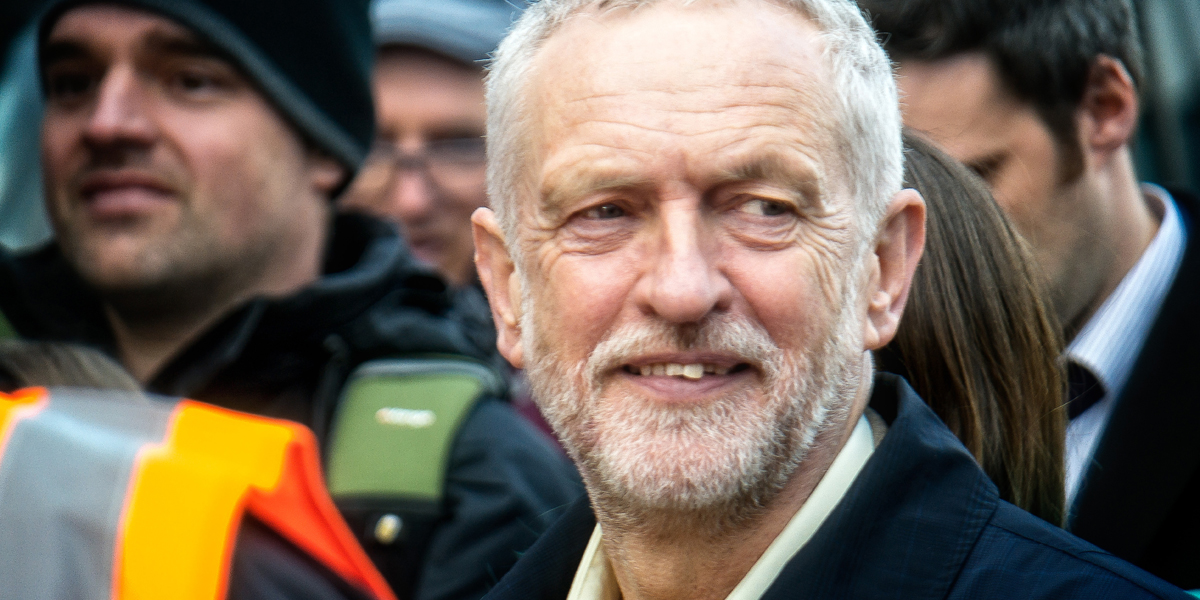Corbyn’s effect
Corbynism is a collective endeavour in the best Labour tradition – and there is much more to come, writes Mark Perryman Over the past two years what has made the Corbynite challenge so distinctive, and has become a core part of...
Corbynism is a collective endeavour in the best Labour tradition – and there is much more to come, writes Mark Perryman
Over the past two years what has made the Corbynite challenge so distinctive, and has become a core part of its appeal, is the way Labour is becoming both a party and a social movement. It heralds a party that is more than the sum of its members, branches, annual conference and MPs.
Theorist of the 21st century’s social movements David Graeber summed up very well the changes that would be needed for Labour to complete this process of combining the electoral and the social:
“Over the past century it [Labour] has gradually become like all the other political parties – personality (and of course, money) based, but the Corbyn project is first and foremost to make the party a voice for social movements once again, dedicated to popular democracy (as trades unions themselves once were). This is the immediate aim. The ultimate aim is the democratisation not just of the party but of local government, workplaces, society itself.”
Corbynism, like Syriza in Greece, Podemos in Spain and Jean-Luc Mélenchon’s La France Insoumise, has not emerged out of nowhere. It is part of a wider phenomenon. These movements are not all the same. But each is popular with a base beyond, and sometimes in contradiction with, the left’s traditional support. Each has enjoyed a surge of success contrary to the rapidly declining position of the previously majoritarian social democratic party in their countries. Journalist Paul Mason seeks to explain this shift in sociological terms, describing the base as ‘the graduate with no future’ equipped with access to social media and a flexible, if broadly supportive, attitude to traditional leftist ideologies. It is a distortion to suggest that this newly engaged base is the sole source of Labour’s increased vote share and huge swings in some constituencies but nor would it be wise to discount its significance either.
And after the June general election where might these tendencies take Labour next? Neal Lawson is the chair of Compass, standard-bearer of new thinking. In an open letter he explained why as a soft leftie in 2015 he surprised himself voting for the hard left candidate, Corbyn:
“But things change. There is no perfect wave, and Jeremy isn’t perfect. But this is not about the person but the moment and the wave the Corbyn candidacy has unleashed. I voted for the wave.”
These were sentiments I could identify with. I’d come to the same conclusion as Lawson with similar political values still intact though with perhaps a smidgen more enthusiasm. Lawson’s description of the ‘wave’ is crucial:
“The Corbyn wave is a window into what is possible. Its energy is breaking up the permafrosted soil that for 30 years has been too harsh for our dreams to grow in. Labour as a party and a movement cannot survive electorally or politically unless it holds out the hope of radically changing society. On this point, time has caught up with New Labour. If the best it gets is to slow the pace at which the poor get poorer and the planet burns then it’s not enough to sustain us. A party needs high ideals and deep organic roots in society if it is to transform that society. This cannot be done from the top down, only when a party meets a groundswell from below.”
And now we have that groundswell. First it was the party that was transformed, and now, after 8 June, it could well be the country come the next election. For this to be sustained however we cannot rely on one individual, whatever his rock star popularity. On the eve of Jeremy’s re-election as leader in 2016 academic David Wearing described both the opportunity ahead and the obstacles:
“For now, the Labour membership’s potential to organise as an active social movement has yet to be realised, which is unsurprising given the exclusionary, aggressive and patronising attitude they have been greeted with by the party establishment. But those members should not allow themselves to be demoralised by what’s happening in Westminster. Instead, they can take the initiative themselves, and set about shifting the ground on which future general elections will be fought and won.”
Such a viewpoint was viewed with derision by most MPs. And plenty of Labour members also lined up alongside the massed ranks of the commentariat long after Jeremy’s triumphant re-election to oppose any such notion. As the months wore on and the poll ratings sank lower, a number of Jeremy’s most prominent supporters peeled off too. A landslide defeat beckoned and an early general election was surely Labour’s worst nightmare. Much of this pessimism was entirely understandable at the time. Those of us beaming with pride now at what has been achieved might enjoy proving the naysayers wrong but we had our doubts too. We’re activists, not fan club followers or personality cultists.
But there was a reason behind the derision we’d faced. Two fundamentally different conceptions of what constitutes the political – different though not always entirely incompatible. Writer Rachel Shabi sums up admirably well the impetus of Corbynism that connects with a constituency that seeks a Labour party that is at one and the same time a social movement:
“This pursuit of collectivism, in the face of decades of rampant individualism, was always one of the more radical aspects of Corbyn’s leadership. It was in evidence throughout his campaign speeches, where he often spoke of society’s many cohorts as one community, binding together groups – young and old, black and white, nurses as well as builders and office workers – that are more often encouraged to compete against each other in the current economy.”
Keir Hardie and Ellen Wilkinson, the hunger marches, Labour winning the peace in ’45, Bevan and the foundation of the NHS, Barbara Castle on the picket line with the women Ford strikers campaigning for equal pay, Foot, Kinnock and Benn leading CND demonstrations, Bernie Grant standing with his community after the 1985 Broadwater Farm riots – after all of that none of what Rachel was describing should appear either new or threatening. But threatening was precisely how some seemed to regard such a shift, and 8 June has done precious little to alter their opinion. They describe their outlook as ‘Clause One Socialism’ and have the pin badges to prove it.
The grouping most identified with this Clause One position inside the Labour party, Progress, puts it thus:
“In the 1930s, 1950s and 1980s Labour was pulled away from its true path by syndicalist social movements. At its founding, the party’s intention was clearly spelled out for the world to see in the very first paragraph of the constitution: to ‘maintain in parliament… a political Labour party.”
In contrast to this parliament-centred view, the key potential of Corbynism is as a party that has a lived experience of, and presence in, every community, at all levels of society. In my small East Sussex town of Lewes, just six miles from where Labour conference will be meeting, I set myself a ‘10-minute rule’ every time I step outside the door. Before I reach my set time I’ve met someone who I know is a fellow member of the Labour party. A neighbour, a market stall holder, a fellow parent, a swimmer down at the pool, someone serving me in a shop, the programme editor of the football club I support. We are everywhere but if we are restricted to the kind of role that Clause One is being interpreted to ascribe to us – passive supporters to be switched on and off when a canvassing session is required, extras rather than the actors – what a waste it would be.
What could have been more symbolic of this potential than the person who introduced Jeremy at his final outdoor rally of the 2017 general election campaign, Saffiyah Khan? A few months previously a photo of her, a young Asian, Muslim woman fearlessly facing down the English Defence League boot boys in her home city of Birmingham, peacefully with a smile on her face, had gone viral. She had stood up for what she knew was right. Neither parliamentarianism nor protest politics can do that on their own. Rather it needs Saffiyah and hundreds of thousands like her to make such resistance possible. And in the process Corbynism challenges the traditional version of populism that on occasion it has threatened to become.
Corbynite Labour is not a stage army at anyone’s beck and call but individuals who come together and become communities of change from below. Welcome to the Corbyn effect. We’ve only just begun.

